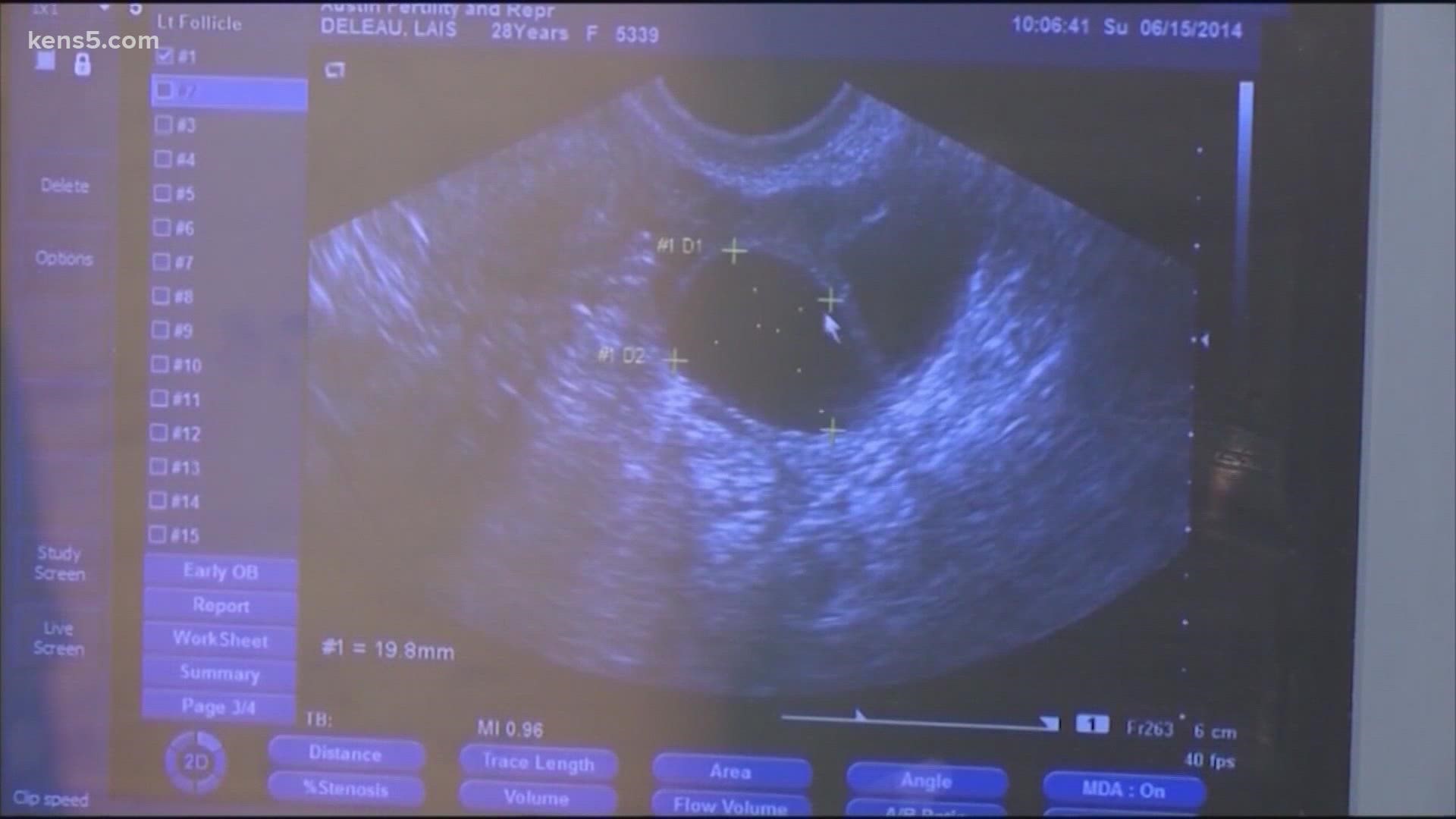SAN ANTONIO — Abortions in Texas fell 60% within the first month of Senate Bill 8 becoming law in September, prompting women to seek services in neighboring states and even nationwide.
But hefty travel and procedure expenses have created challenges for women in need of an abortion.
Senate Bill 8 bans abortion after six weeks of pregnancy without exceptions to rape or incest.
The Lilith Fund is among the Texas-based organizations financially assisting women impacted by the restrictive abortion legislation.
“At Lilith Fund, we’ve funded a thousand people since September 1 and we’re now giving vouchers in the range of $550-$850 regularly and then in some cases, even $1,000,” said Paige Alexandria, who serves on the Lilith Fund’s board.
Alexandria can relate to the struggles of women in need of an abortion. She recalls the news of her unwanted pregnancy several years ago.
“I had an abortion in 2016 while HB2 was in effect so I experienced a lot of the same barriers that people are experiencing right now, having to travel out of state, experiencing long clinic wait times, the lack of financial and logistical resources necessary,” Alexandria said.
The Lilith Fund and Fund Texas Choice have fielded an increase in calls from women inquiring about available options for abortion and financial assistance.
Alexandria said patients are traveling to clinics in New Mexico, Oklahoma and Louisiana. But long wait times have some women going to the west and east coast for care.
“Some patients are going as far as California, Florida, New York, either because the availability of nearby clinics out of state is too limited or they have family and friends in another state that makes traveling feel more comfortable,” Alexandria said.
One of those organizations is the Trust Women clinic in Oklahoma City, which has seen an influx of Texas women looking for abortion services.
“We went from seeing 12 Texas patients in August to 130 in September,” said Rebecca Tong, Trust Women’s co-executive director.
The Trust Women facility in Kansas went from 10 Texas clients in August to 91 the following month when Senate Bill 8 went into effect.
Wong noted clients are being scheduled two weeks out and there are ongoing efforts to hire additional staff to meet services demand.
“There’s no right way or easy way to put this, but people are being absolutely delayed, being denied access, being turned away. It makes health care riskier by doing this,” Tong said.
Tong and Alexandria urge the community to continue supporting organizations such as the Lilith Fund and Fund Texas Choice, which make it possible for women to afford abortion services.
“The fact that these organizations exist should not replace the need for accessible abortion and a repeal on all abortion bans,” Alexandria said.
“We have to protect as many points of access right now as possible in as many states as we possibly can in order for basic freedoms to be honored in our country. This is truly what we’re facing right now, the loss of a basic human right,” Tong said.
Senate Bill 8 will be reviewed by the Texas Supreme Court. Meanwhile, the U.S. Supreme Court is expected to decide on a Mississippi case that challenges Roe v. Wade, which created the constitutional right to abortion.

